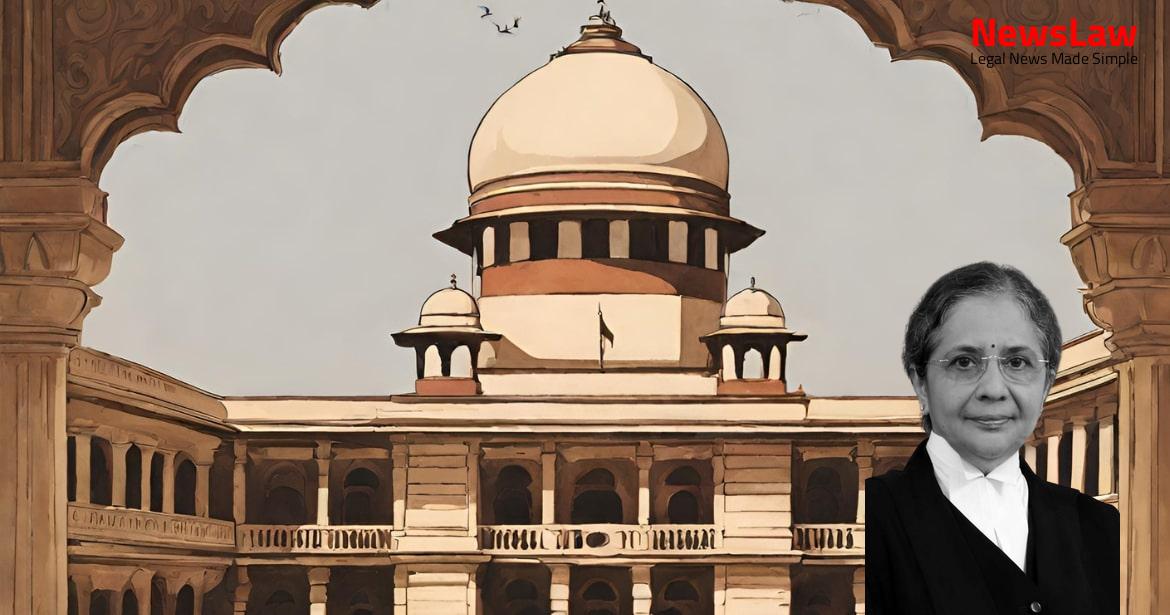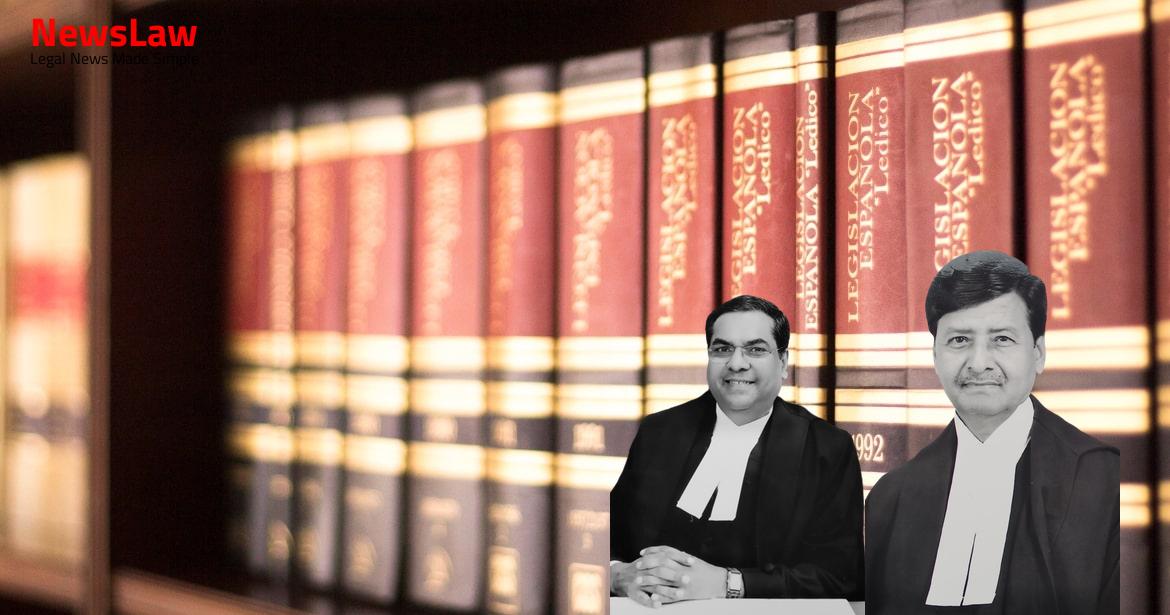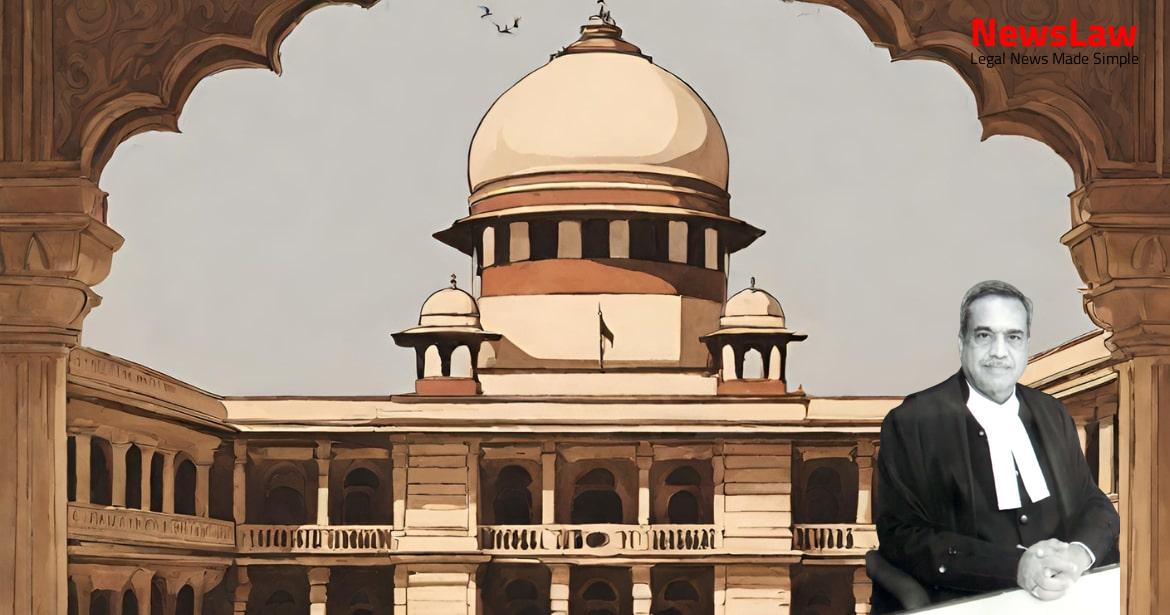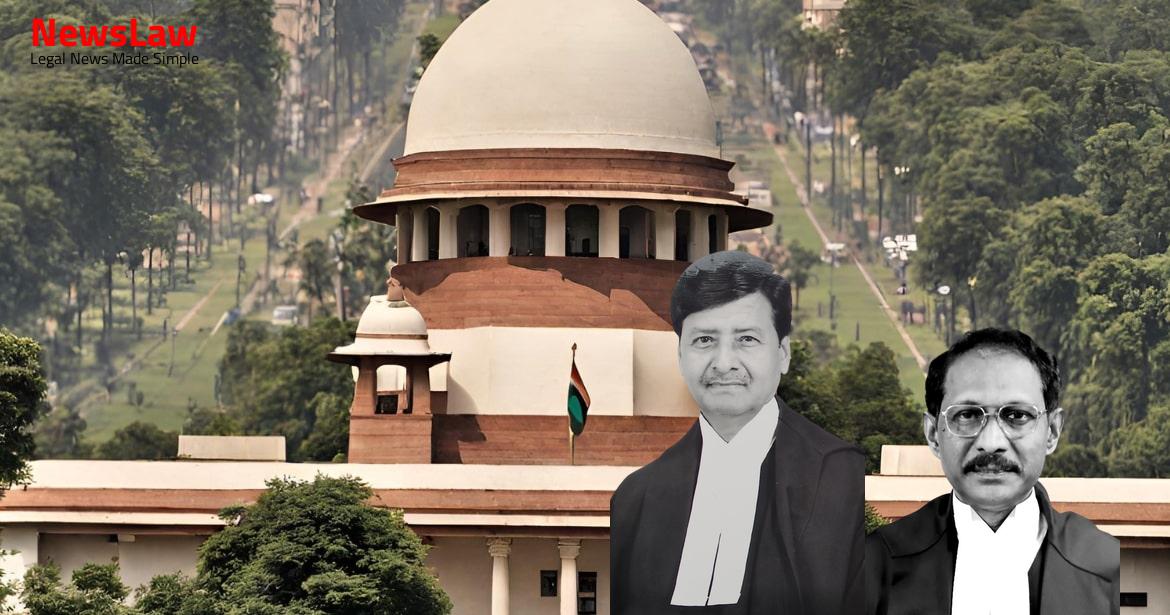In the case of D.K. Gandhi vs. The Advocates, the Supreme Court of India delivered a significant judgment addressing the applicability of the Consumer Protection Act to legal services. The case delved into the obligations of Advocates in representing clients and the unique nature of the legal profession. Stay tuned for a detailed analysis of this crucial ruling.
Facts
- The appellant, an Advocate, was hired by Mr. D.K. Gandhi to file a complaint under Section 138 of the Negotiable Instruments Act.
- The appellant did not deliver the DD/pay order and crossed cheque received from the accused to the respondent, instead demanded cash.
- A complaint was filed by Mr. D.K. Gandhi seeking compensation for a dishonored cheque of Rs.5,000/-, mental agony, and harassment.
- The appellant resisted the complaint, citing that Advocates were not covered under the CP Act, but the District Forum rejected the objection.
- The District Forum decided the complaint in favor of Mr. D.K. Gandhi.
- The appellant also filed a suit for recovery of his fees in the court of Small Causes.
- During the course of the complaint case, the accused agreed to pay the sum due.
- The appellant handed over the DD/pay order for Rs.20,000/- and cheque for Rs.5,000/- to Mr. D.K. Gandhi, but the payment of the cheque was stopped by the accused on the appellant’s instance.
- Appellant filed appeal against the order disallowing the complaint against the lawyer/advocate service.
- State Commission allowed the appeal stating that lawyer/advocate services do not come under the definition of ‘service’ in CP Act, 1986.
Also Read: High Court Appeal: Custody of Vehicle in Gujarat Prohibition Case
Issue
- Whether a complaint alleging ‘deficiency in service’ against Advocates practising Legal Profession is maintainable under the Consumer Protection Act.
- Consideration of whether the Legislature ever intended to include the Professions or services rendered by the Professionals within the purview of the CP Act 1986 as re-enacted in 2019.
Also Read: Level 9 BIZ Pvt. Ltd. v. HIMUDA Legal Case Summary
Arguments
- The Advocates Act, 1961 is a law exclusively for the legal profession, setting professional standards and addressing professional misconduct.
- The legal profession is considered noble, not a business.
- Lawyers deal with complex legal landscapes shaped by various factors.
- Legal disputes often involve multiple parties with conflicting interests.
Also Read: State v. Satyendar Kumar Jain: Money Laundering Case
Analysis
- The importance of defending a person accused of a crime regardless of personal opinion on guilt.
- Appointment of a pleader, known as Vakalatnama, and its requirements.
- Discussion on whether the Legal Profession is sui generis.
- Exploration of whether hiring or availing the services of an Advocate falls under ‘a contract of personal service’.
- Analysis of the legislative intention behind the Consumer Protection Act 1986 and its re-enactment in 2019.
- Rules and obligations for advocates to uphold the interests of their clients.
- Definition of ‘Pleader’ according to Section 2(15) CPC.
- Comparison of the definitions of ‘Service’ and ‘Deficiency’ in the Consumer Protection Act of 1986 and 2019.
- The role of the Bar in the legal system is significant for protecting the rights of individuals of equality and freedom as constitutionally envisaged.
- Lawyers, as fiduciaries, have more demanding duties imposed on them compared to other agents.
- The Bar Council of India Rules provide guidelines for the standards of professional conduct to be observed by all advocates.
- An advocate shall comport himself in a manner befitting his status as an officer of the Court and a gentleman, with certain duties to the courts, client, opponent, and colleagues.
- The legal profession, being a service-oriented profession, requires a certain minimum degree of competence and reasonable care in the discharge of duties.
- Lawyers assume traditional duties owed by agents to their principals and respect the client’s autonomy in decision-making within the representation objectives.
- The decision in the case of Indian Medical Association vs V.P. Shantha raised the question of whether legal services fall under the Consumer Protection Act and may need to be revisited.
- The legal profession is unique and cannot be equated with other professions in terms of services provided to clients and the nature of professional work.
- Lawyers contribute significantly to the justice system, independence of the judiciary, and evolution of jurisprudence.
- There is a mutual respect and balance required between the Bar and the Bench to maintain the effectiveness and dignity of the judicial system.
- Rules 15 and 19 of the BCI Rules are extracted, highlighting the authority of a lawyer in choosing means to achieve the client’s legal goal, while the client decides on the goal.
- Advocates have the right to practice law according to the Advocates Act, ensuring professionalism and ethical conduct.
- The CP Act 1986 and re-enacted CP Act 2019 aim to protect consumers from unfair trade and unethical business practices.
- Legal professionals are obligated to follow client instructions, maintain dignity with the judiciary, and are not immune to liability for professional misconduct.
- Advocates have traditional duties to clients, and the CP Act was enacted to protect consumer interests.
- The Act aims to provide redressal for consumer disputes caused by unfair practices, and professionals like lawyers are not explicitly included under its purview.
- Advocates are governed by disciplinary measures under the Advocates Act for misconduct, ensuring timely and effective settlement of disputes.
- Legal professionals play a crucial role in maintaining the integrity of the judicial system, and must seek client instructions before acting in court.
- The legal profession’s impact extends beyond individuals to the administration of justice and society as a whole, distinguishing it from other professions.
- The Act promotes consumer rights, protection against hazardous goods, and access to redressal against unfair practices, emphasizing consumer welfare in the market economy.
- The Legal Profession is considered unique and cannot be compared to any other profession.
- The Consumer Protection Act of 1986, re-enacted in 2019, aimed to protect consumers from unfair and unethical business practices.
- The Legislature did not intend to include Professions or services by Professionals under the Consumer Protection Act of 1986/2019.
Decision
- The impugned judgment passed by the NCDRC has been set aside.
- A complaint alleging ‘deficiency in service’ against Advocates practicing Legal Profession is not maintainable under the CP Act, 2019.
- The Appeals have been allowed accordingly.
Case Title: BAR OF INDIAN LAWYERS THROUGH ITS PRESIDENT JASBIR SIGH MALIK Vs. D.K.GANDHI PS NATIONAL INSTITUTE OF COMMUNICABLE DISEASES (2024 INSC 410)
Case Number: C.A. No.-002646-002646 – 2009



